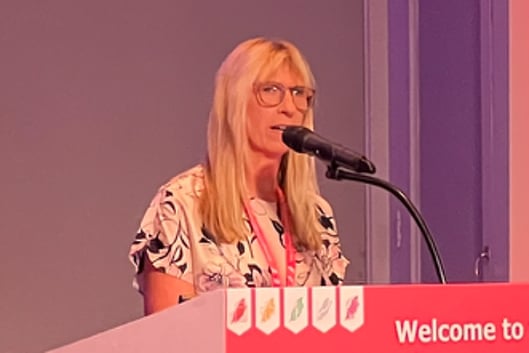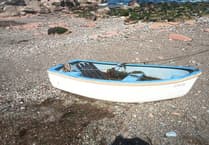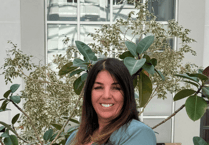A new strategy aimed at securing Manx borders from criminal exploitation has been unveiled.
It follows growing concerns about drugs, weapons, modern slavery, immigration abuses and other criminal activities.
Measures being taken as part of the ‘Securing Our Island’ strategy include the introduction of facial recognition and automated number plate recognition (ANPR) at our air and sea ports.
Also under consideration is introducing ID registration for all island residents.
The strategy was unveiled by Home Affairs and Justice Minister Jane Poole-Wilson at this week’s Government Conference.
She said: ‘We will not allow criminals to exploit our open borders to profit from misery and violence.’
Head of Customs and Immigration, Sandra Simpson admitted: ‘At this stage we don’t know the extent of [immigration] abuse. But the evidence is suggesting it is quite widespread.’
She said that workers had been offered visas under fraudulent pretences and travelled thousands of miles at great personal expense for jobs that simply don’t exist or were not as they were advertised or at the salary levels they were led to believe.
Immigrants had been charged fees by employers or recruitment firms for obtaining visas which they then had to pay back from their salaries - which was difficult to do when they were on a minimum wage and trying to support their family.
This led to the potential for cramped housing conditions to save on costs and the use of food banks to make ends meet.
‘This is not what we want to see in our society,’ she said.
She said some of the migrants had little knowledge of the English language which made it difficult to determine the issues they were encountering.
There was also the potential for the island’s immigration system to be used as a back door to the UK.
The conference heard that no records are kept of people arriving or departing the island.

Island advocate Maria Bridson first raised the issue of modern slavery at last year’s Government Conference in September.
In a question and answer session during the second day of the conference, she said it was ‘disappointing that it had taken 12 months to have this open discussion about the very dark under belly that’s going on in our island.’
‘It shouldn’t take 12 months for a modern slavery poster to be put on the back of a toilet door on the Steam Packet so people know how to reach out.’
The conference heard that organised crime, including drug trafficking, has become an increasing threat, with street prices for some illegal substances now three times higher than the UK, making it an attractive target.
More than 3.25kg of heroin, 1.75kg of cocaine and 19kg of cannabis was seized by police between 2023 and 2024, alongside £65,000 in cash, as part of three major operations that targeted organised crime groups (OCGs) and saw 21 arrests.
The new strategy aims to secure borders with advanced technology, ensure efficient and fair entry processes and detect criminals before they enter the island.
A new dog team is now in operation, screening arrivals and departures at the sea terminal and airport. It’s been in place for four weeks and in that time police have seized £82,000 of drugs coming into the island and £33,000 of criminal proceeds going out.
The conference heard that government is working towards introducing facial recognition and ANPR at air and sea ports. Law enforcement officers will also be present for all major arrivals to carry out proactive and intelligence-led security checks.
Mrs Poole-Wilson said: ‘Facial recognition is an automated process that can quickly identify people against a known watch list of known criminals. It’s not capturing and holding people’s data.’
Government is also considering the potential of legally controlling residency, underpinned by a registration system for all residents and not just migrants.
Chief operation officer Dr Megan Mathias told the conference: ‘Maybe that’s an idea whose time has come that we all have our identification for accessing public services.
‘A registration system would be a significant development. It needs to be understood by the island before we considered bringing it in.’



